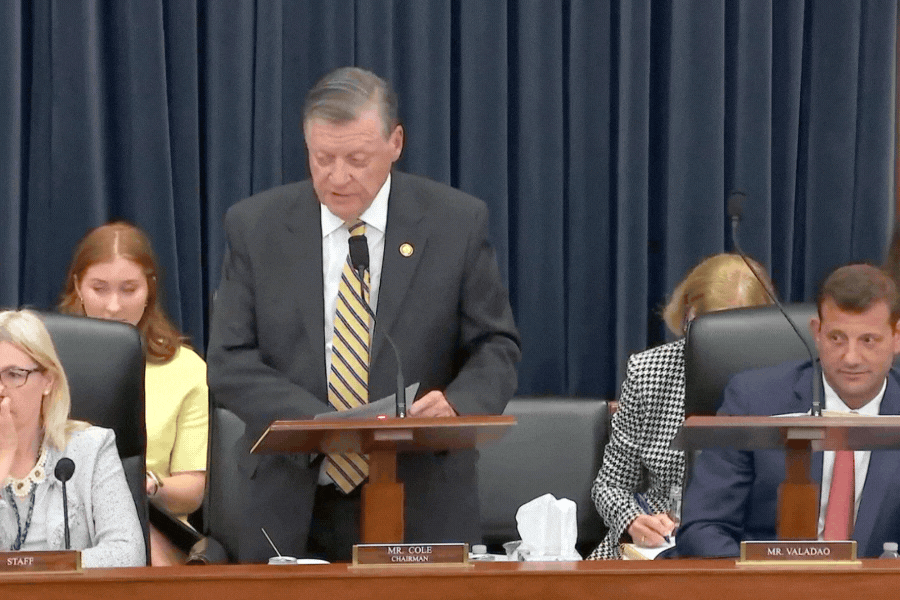In Washington, seniority has long been a badge of honor. Decades of committee work and deep institutional memory still command respect. But a louder question keeps cutting through the tradition: are the people making day-to-day decisions still able to do the job—every day? With Congress older than it has ever been and public trust sliding, a young Democrat from Washington state is trying to put a basic guardrail in place: set a standard for mental fitness—and test it.
The age story isn’t just a vibe, it’s documented. Congress today skews old, with the Senate’s median age in the mid-60s and the House just under 58, according to Pew Research Center and the nonpartisan Congressional Research Service. Nearly one in five members are 70 or older, PBS NewsHour has noted. Those numbers sit alongside something else that’s unmistakable: broad public support for age or health accountability. Pew found that roughly eight in ten Americans favor maximum age limits for federal office. A Washington Post poll showed similarly strong support for mental-competency testing for politicians over 75—and for making the results public.
That’s the backdrop for a blunt push from Rep. Marie Gluesenkamp Perez. At the end of June, she offered a one-sentence amendment in the House’s annual Legislative Branch funding bill that would have the Office of Congressional Conduct—the House’s independent watchdog—write a neutral ethics standard for cognitive acuity. Her office laid out the case in a press release after the vote: “Citizens elect a Representative to serve as their voice in Congress, but I hear concerns from my neighbors that unelected staff are steering the ship in our federal government… All Americans deserve to know that this body is holding itself to a high ethical standard.” The amendment’s text is short and direct. It would direct the watchdog to define when a member’s performance is impeded by “significant irreversible cognitive impairment,” giving the House Ethics process something firmer than rumor or viral clips to work with.
The Appropriations Committee rejected it quickly—no real debate, no appetite to take the heat. But the idea landed outside the room. Axios reported on the proposal as an unprecedented attempt to let the ethics office adjudicate claims of serious cognitive decline. Perez framed it less like a political weapon and more like a common-sense check—akin to the vision test you take to drive—so that accountability doesn’t depend on who has the meanest opposition ad.
If you’ve followed the last few years of headlines, you get why the public’s there already. High-profile health struggles at the top of government kept the age question on a loop. The late Sen. Dianne Feinstein became a case study as colleagues and reporters openly worried about her capacity in her final months; that discomfort was covered widely by outlets from the San Francisco Chronicle to Vox and AP. Closer to the House, the situation around longtime Appropriations chair Kay Granger blew up after local reporting suggested she was living in a facility that offers memory care; her office denied she was in the memory-care unit, but acknowledged health challenges, as covered by CBS News and Fox News, while international outlets like The Guardian and Times of Israel amplified the story. None of that is partisan; voters see it and ask an obvious question: who’s actually making the decisions?
Perez’s pitch tries to thread that needle. It wouldn’t summarily kick anyone out of office. It would set a standard so there’s a real process when the question is serious—one that lives in an ethics framework instead of cable-news speculation. Her office summed it up again after Axios covered the backlash: people want “systemic reform,” not performative outrage. That’s a key point. Congress changes slowly, but public patience is thinner now. When voters believe staff are quietly steering a member’s office because the member can’t, that’s not just a bad look—it undermines the whole idea of representation.
Of course there are hard questions. Who sets the testing protocol? Who sees the results? How do you protect medical privacy and disability rights while still assuring the public that the person in the chair can actually do the job? The ADA landscape and House rules make this tricky. But the alternative—pretending decline never happens here—has a cost too. You end up with rumor-driven politics where every stumble turns into a week-long health panic and every staffing decision looks like a cover-up.
It’s also true that experience matters. Some lawmakers stay sharp deep into their 80s, and Congress benefits from people who’ve seen the same fights play out across decades. Even so, the workload has changed. Modern governance is faster, more technical, and more crisis-driven than it used to be. That’s part of why the competency idea broke into the mainstream in 2023, when Nikki Haley campaigned on mental-competency tests for politicians over 75—an idea covered from Reuters to ABC News. You don’t have to agree with Haley to see the broader point: voters don’t want to be told to ignore what they can see.
Polling hasn’t moved away from this. The latest Axios-Ipsos American Health Index—backed up by Ipsos’ release—found about eight in ten Americans want presidents to be legally required to share cognitive test results and disease screenings with the public. That sits comfortably next to the Pew and Washington Post findings on age limits and competency checks. The through-line is simple: people don’t believe the system polices itself, and they want proof their leaders are still sharp.
Inside the building, the politics are messier. The House only recently reactivated its watchdog after months of drift, as POLITICO detailed. It also renamed the watchdog from the Office of Congressional Ethics to the Office of Congressional Conduct in this Congress, part of a broader rules reset Axios wrote up in January. That rebrand matters because it’s the office Perez would task with defining and enforcing the standard. If you want a neutral process, you need a neutral referee that’s actually open for business.
Stepping back, it’s worth being precise about what Perez did and didn’t propose. She did not call for a mass purge of older lawmakers or a quick trigger to force resignations. The amendment itself would have the watchdog define a standard for when a member’s irreversible cognitive impairment becomes an ethics problem. That standard would live inside the existing Ethics process. It’s a small change on paper with big implications in practice: members would know where the line is before a crisis hits, and the House would have something more than press statements to point to when the hard cases arrive.
Will it pass next time? Probably not right away. Leadership in both parties has little interest in picking a fight with their most senior members, and the Appropriations Committee already swatted it down. But the pressure is not going away. The age profile of Congress is still high, as Pew’s 2025 update shows. Younger candidates are leaning into generational change, as Axios and other outlets have reported. And virtually every new poll on health transparency points in the same direction.
So the cleanest path is also the simplest: don’t make it personal, make it professional. Set a standard, follow it, and be honest with the public. That’s the heart of Perez’s push in her own statement and in the coverage from Axios and The Olympian. It won’t solve every edge case, and it will raise difficult questions about privacy and process. But it beats the status quo of rumors and wishful thinking. The public doesn’t need perfect leaders; it needs confidence that the people casting votes and cutting deals are fully present and actually doing the job they were elected to do.


